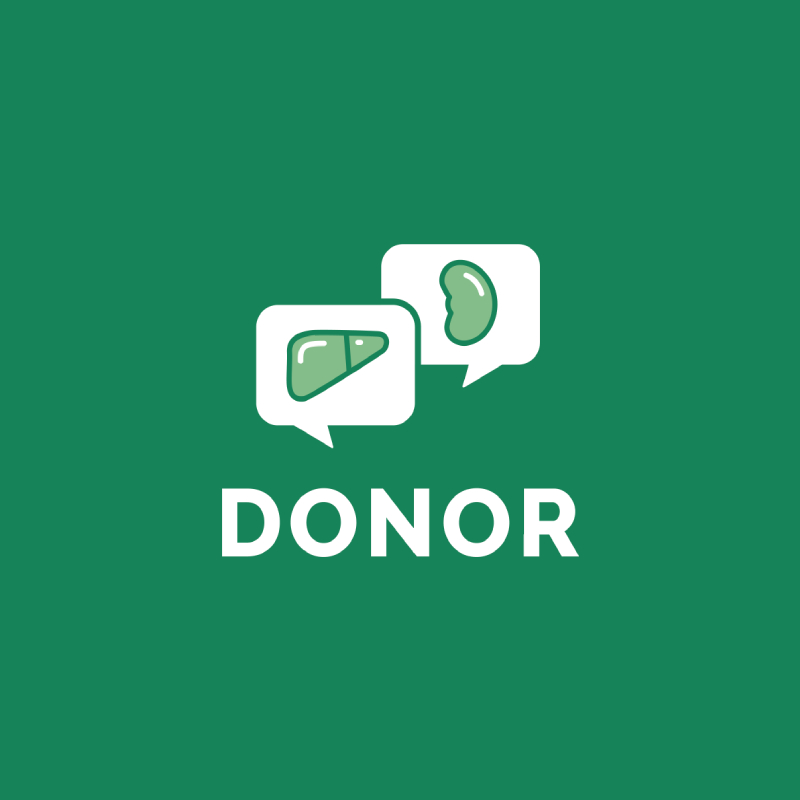
Directed Donor
Directed donors are those that come forward for a specific person on the transplant list, whether it is a family member, friend, colleague, or someone else in need.



Non-Directed Donor
Non-directed donors are people with no direct ties or connections to the patient in need. They often donate out of a sense of altruism and wanting to help someone in need, even a total stranger.
How Your Donation Can Save a Life?
Quality of Life
Transplants can greatly improve a recipient's health and quality of life, allowing them to return to normal activities.
Increased Life Span
A kidney transplant dramatically increases the life span of a patient by about 10 years and improves their quality of life.
Shorter waiting time
Patients on the national transplant list face long wait times (sometimes several years). Patients who find a living donor do not have to wait.
THE DONOR PROCESS
Contact the Transplant Center
If there is a particular patient you want to donate to, click the Fill Out Donor Questionnaire button on their story, or use the Becoming a Donor button on their story to get more information on their Transplant Center's organ donation process.

Preliminary Evaluation
You can start the discussion with a medical expert to determine if living donation is right for you. All different types are eligible to donate - it’s easy to get started.

Evaluation Process
The evaluation process consists of a thorough medical look-over. A multi-disciplinary team will make sure it’s safe for you to donate.

Making a Decision
You will be in contact with the transplant center throughout the entire evaluation process. If you have an intended recipient, they will determine if you are aa good match. If you are interested in non-directed donation, you be paired with an appropriate recipient.


Want to learn more?
CONNECT WITH EXPERTS AT A TRANSPLANT CENTER NEAR YOU
Interested in becoming an organ donor but have questions about the process or unsure of where to start? Reach out to us and we’ll help guide you to the right resources based on your interest and where you live.

Frequently Asked Questions
In the US today, there are over 100,000 people in need of a life saving transplant. Approximately 15,000 patients are waiting for a liver transplant and 101,000 are waiting for a kidney transplant. As a living donor, you can save the life of someone awaiting transplant.
Living donors must be over 18 years old, as well as physically and mentally healthy, and with an ethical motivation to donate. They must have a strong support system, as the process of donation can be physically and emotionally demanding. For more information on the medical requirements to become a living donor, please contact your transplant hospital.
Not at all! When you contact the transplant hospital, they will give you more information about becoming a living organ donor and then the rest is up to you. You can change your mind at any step in the process.
No, transplant centers do not tell patients when individuals call to inquire about becoming a donor. You can decide if and when the patient finds out you want to be their donor.
Becoming a living donor is a personal decision. Speak to your doctors, family, and friends to learn about the process and decide if living donation is right for you. Once you decide that you are interested, contact the transplant center listed on the patient’s story page to get more information and begin the evaluation process.
When making a live organ donation, it is important to be in good health and make an informed, voluntary decision. Evaluation at the transplant center ensures that you fully understand the donation process, and that you are physically and mentally ready to do so. In addition, the hospital needs to verify that you are a good match for your intended recipient.
Each living donor evaluation is different. The transplant center you contact will be able to describe their process for evaluation and answer any questions you may have. In some instances, this information is available on the transplant center’s website.
That is OK! You can still be a living organ donor. If you are interested in living donation, contact the transplant hospital and let them know that you are not nearby, and the transplant team will help you throughout the process and answer all of your specific questions.
Most medical insurances cover donor-related expenses before and after living organ donation, and each case is reviewed on an individual basis. The evaluation process will provide detailed information on this topic.
No, it is illegal and unethical to sell a human organ as a living donor. The penalties for this can be very severe, including fined and prison. If you need financial assistance to be a living donor, the hospital social worker can provide resources such as www.livingdonorassistance.org, or other charitable foundations. The social worker can also explain to you what types of expenses can be paid by the organ recipient.
Patients In Need of a Transplant
Today, living organ donation is a viable option for many transplant patients, yet the number of people waiting for a transplant far exceeds the number of donors. View some of the inspiring Patient stories and consider becoming a living organ donor.

Nicolas
Kidney DONOR NEEDED"I look forward to the day that I’m not tired, unwell and can live my life to the fullest."

Daniel
Kidney DONOR NEEDEDTurn (Kidney) Failure Into A Success Story, Share Your Spare For Father of Three




